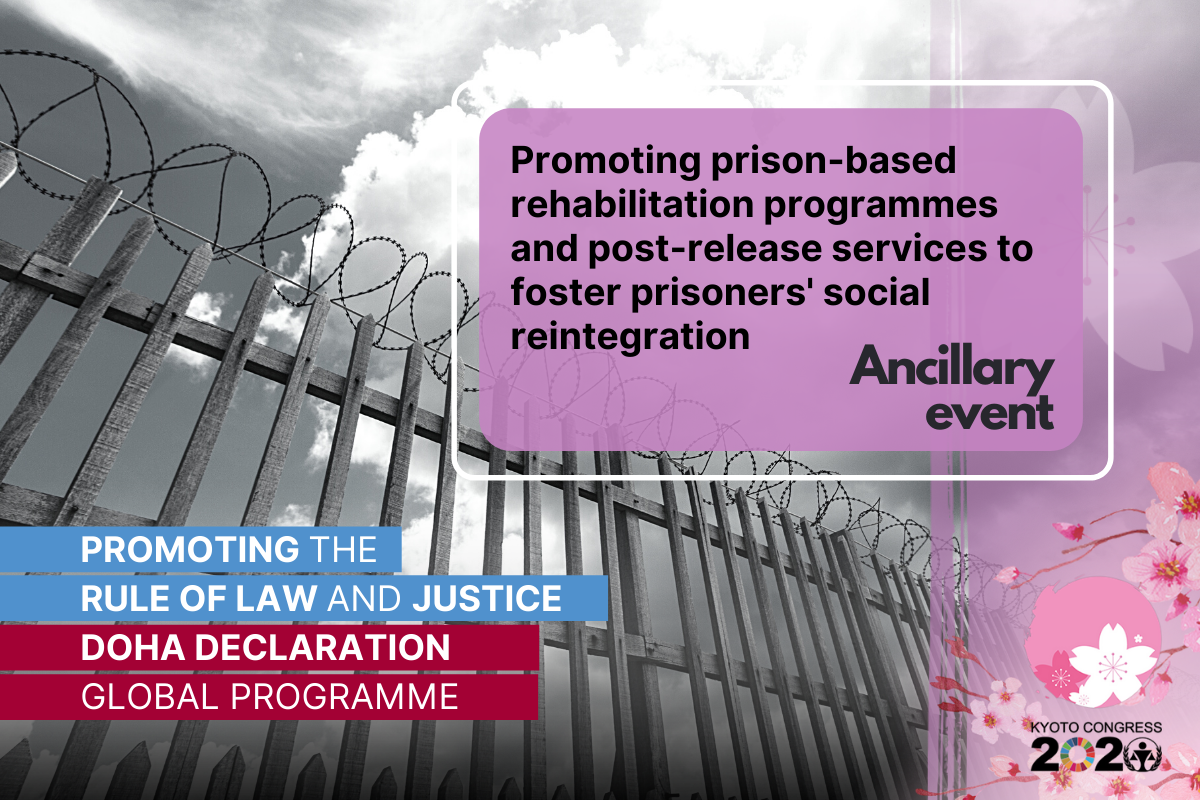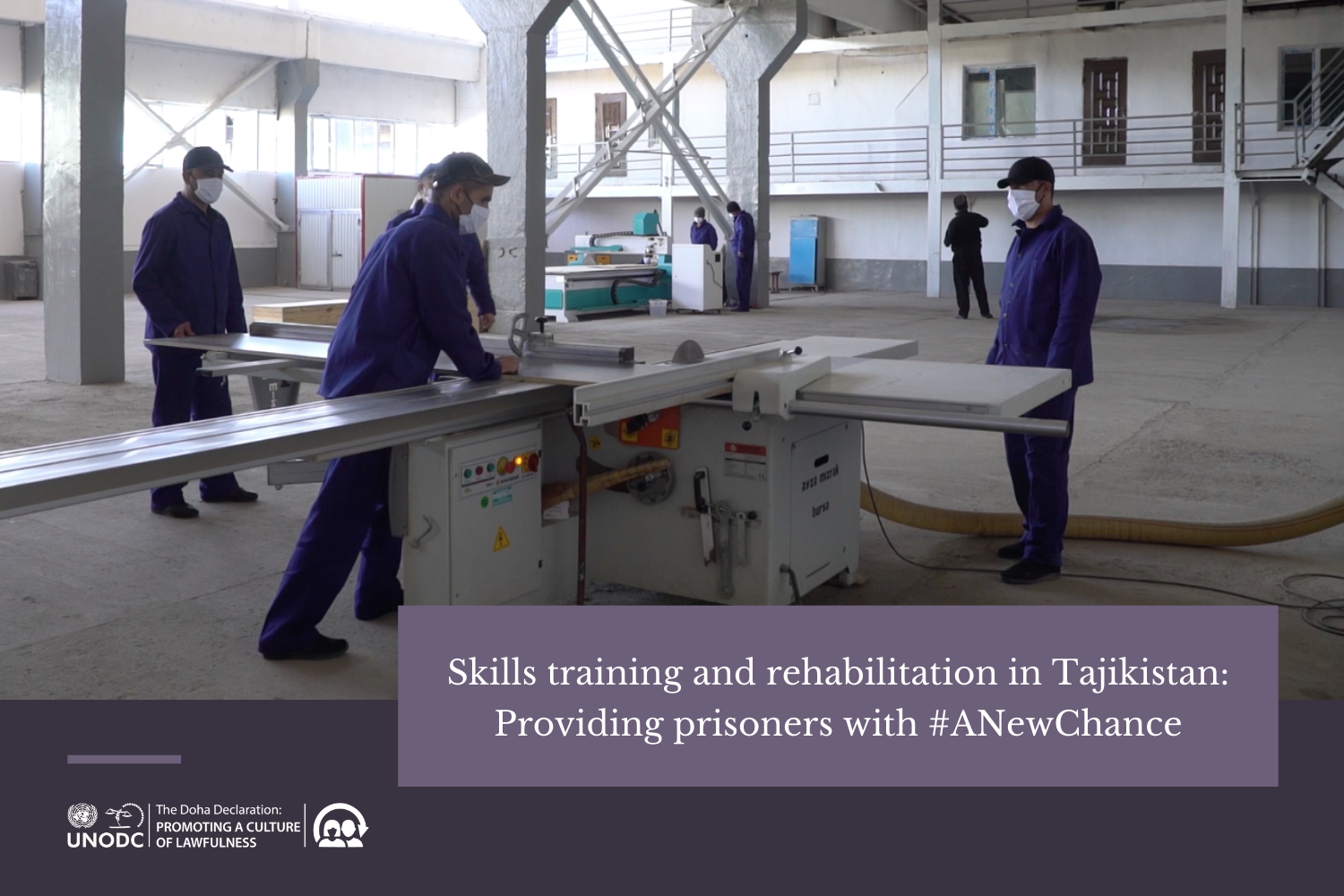With a focus on reducing prisoner re-offending, new vocational and work-based rehabilitation projects launched in Tajikistan
03 May 2018 - As part of UNODC's efforts to provide technical assistance and advisory services in the field of prison reform, last month saw the signing of a new agreement with the Government of Tajikistan to support the development of metalwork and woodworking programmes in Dushanbe and Khujand. The initiatives, which were identified with the country's prison service, are expected to enhance prisoners' earning capacity as well as their ability to reintegrate into society upon release.
The modernization of the two prison-based production facilities will permit male inmates to enrol for vocational courses and obtain certificates qualifying them to be employed in metalworking and furniture manufacturing. Further to their training, prisoners will have an opportunity to be employed in the two prison workshops. In equipping them with formal qualifications and skills, this project seeks to improve ex-inmates' employment prospects upon release and reduce the likelihood that they will reoffend. Prisoners will receive an equitable remuneration for their work and be allowed to use their salaries both for covering their own needs and to support their families.
"Prisoners continue to be part of our society and must be treated with respect," noted Sharif Izatullo, Deputy Minister of Justice and Head of the Tajik Prison Service, at the agreement signing. "Proper treatment and providing good conditions in prisons will contribute to successful reintegration of prisoners into society."
As the majority of prisoners return to their communities within a few years, it is vitally important as to how they are treated while incarcerated. The concept of prisoner rehabilitation, therefore, is based on the belief that in order to make societies more resilient to crime and to promote social cohesion alongside the rule of law, the international community cannot afford to disregard those in prison. This also makes sense financially as investments into corresponding programmes for prisoners are considered one of the most effective measures to curb recidivism, subsequently reducing costs associated with repeated incarceration and lowering prison overpopulation.
UNODC's work is based on widely-recognized international standards, in particular the 'Nelson Mandela Rules', which recall the importance for penitentiary systems to include measures to foster prisoners' social rehabilitation. Around this, UNODC's Regional Representative for Central Asia, Ashita Mittal pointed out, "International law stipulates that imprisonment should not be limited to the deprivation of liberty alone. This is why our cooperation with the Government of Tajikistan on this issue is of immense value, as the planned production facilities will allow prisoners to obtain knowledge and skills that can assist them in their successful social reintegration, with a view to avoiding future offending."
Additional information:
UNODC's Roadmap for the Development of Prison-based Rehabilitation Programmes: English
UNODC's Roadmap for the Development of Prison-based Rehabilitation Programmes: Russian
Assessing compliance with the Nelson Mandela Rules: A checklist for internal inspection mechanisms
Introductory Handbook on the Prevention of Recidivism and the Social Reintegration of Offenders
United Nations Standard Minimum Rules for the Treatment of Prisoners (the Nelson Mandela Rules)


